©2018 VOiCEup Berks, 201 Washington St., Suite 547, Reading, PA 19601 | 484-706-9364| Privacy Policy | Terms of Use


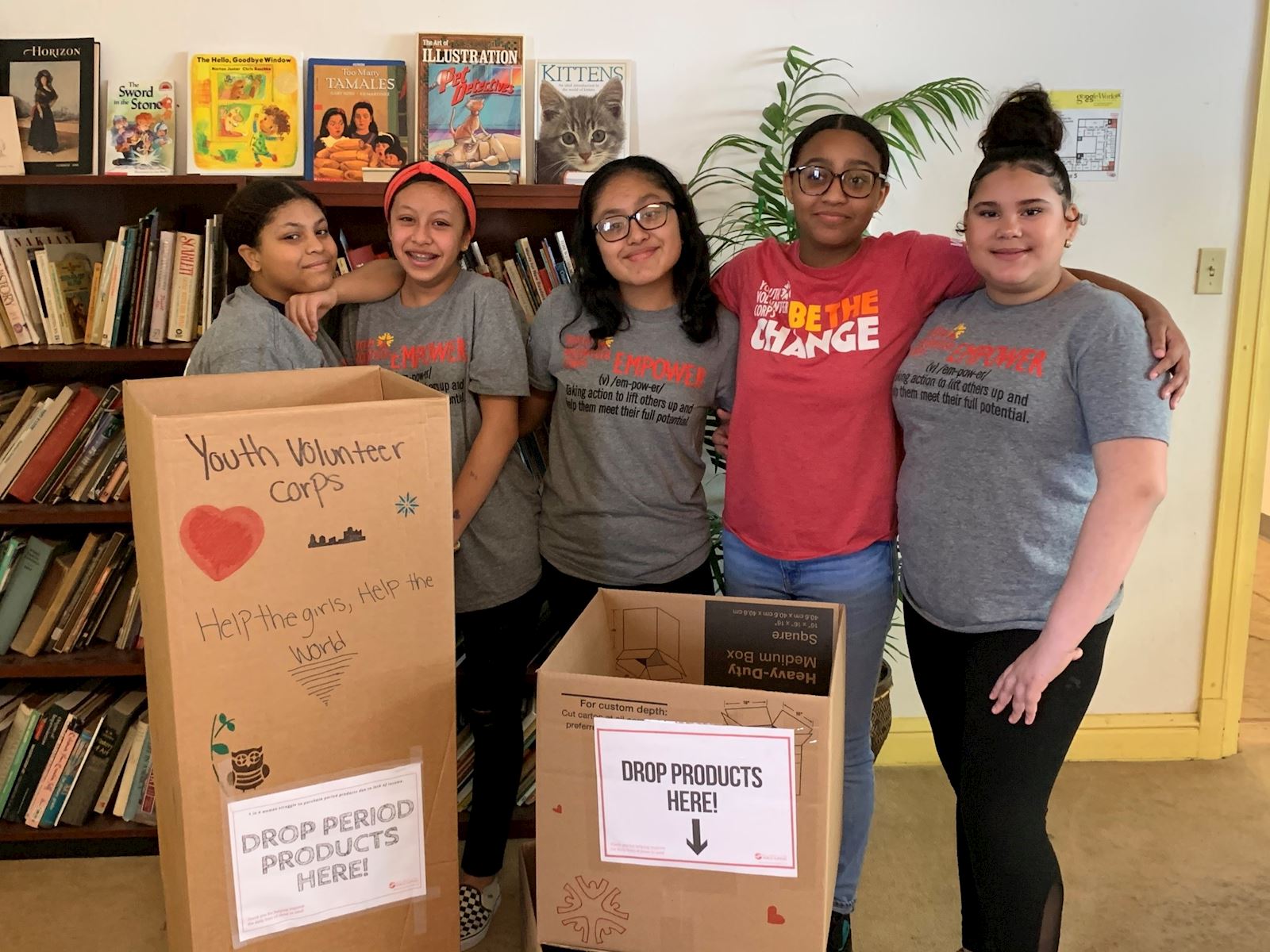
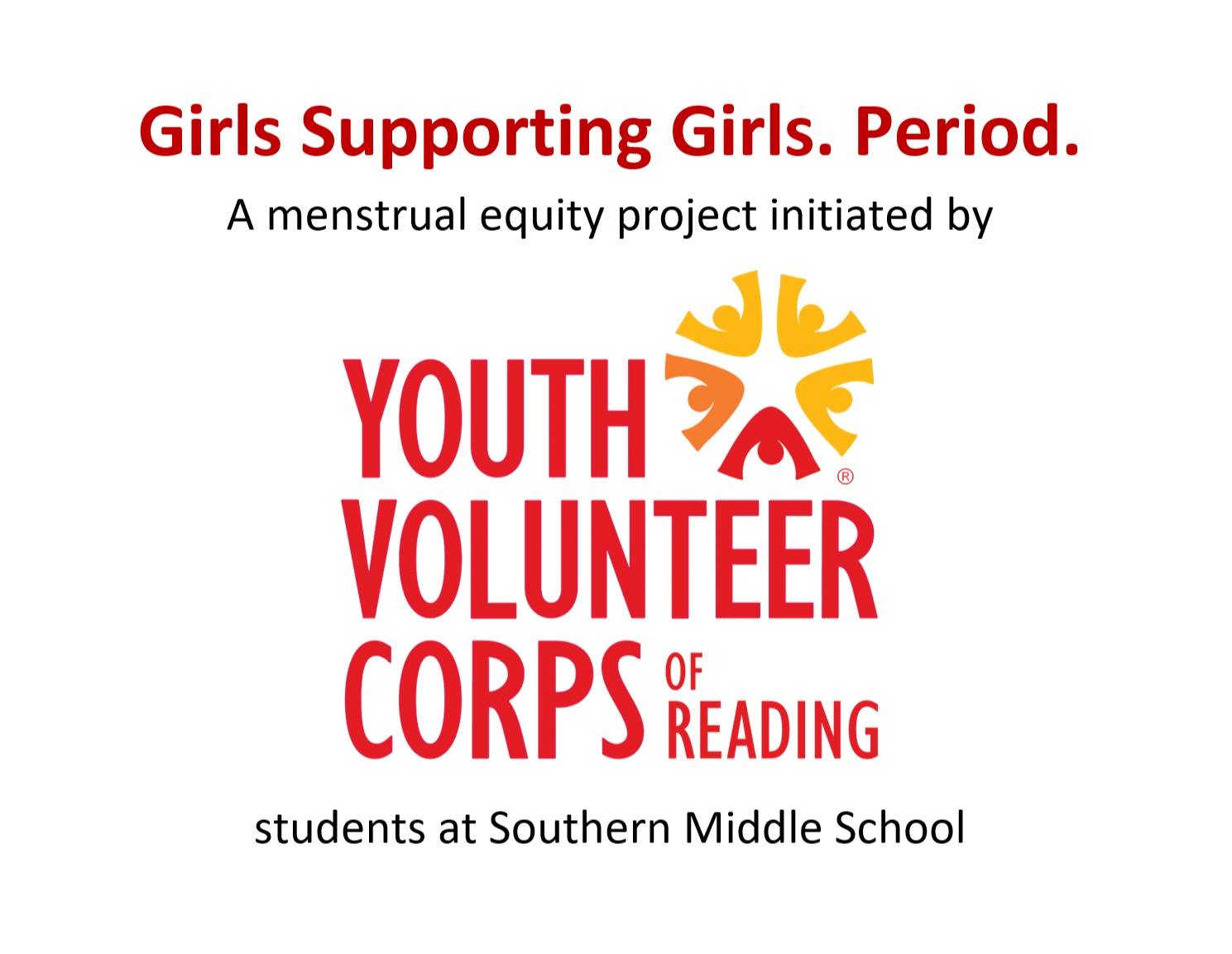
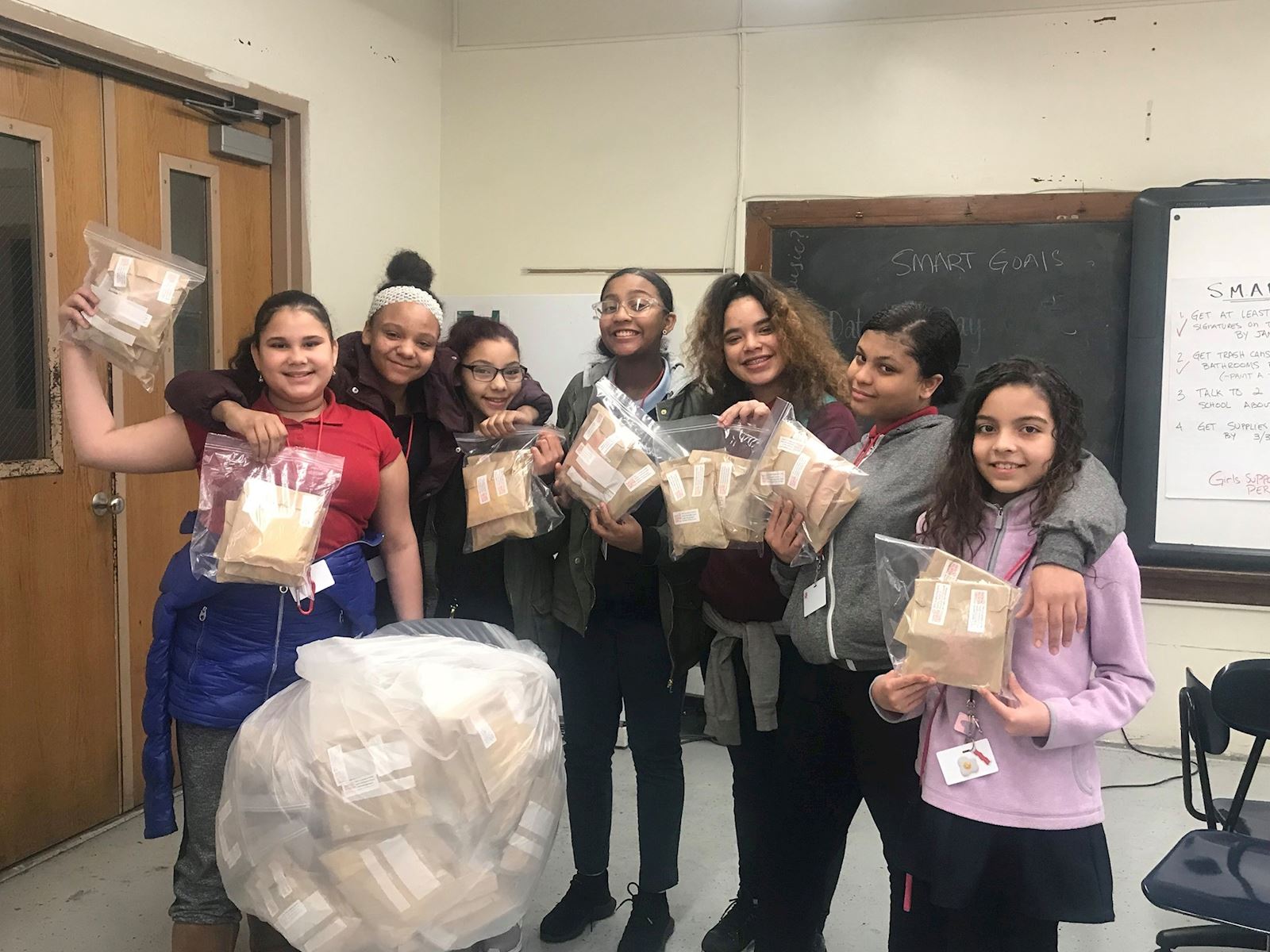
"Girls Supporting Girls. Period.” is a project initiated in 2018 by a Youth Volunteer Corps leadership group from Reading, PA that advocates for menstrual equity. This group wants to ensure that period products are affordable, safe and available to those in need – especially those in shelters, schools, and prisons. Their project includes changing the bathroom culture and menstrual product access in their schools, collecting menstrual products for girls and women in local shelters, and contacting policymakers to see what policy changes can be made to ensure menstrual equity for girls in other local schools. Their goal is to educate others about Period Poverty and to advocate for change.
The Facts...
What is Period Poverty?
Period poverty refers to the common situation of being unable to afford products such as pads, tampons, or liners to manage menstrual bleeding. Instead of menstrual products, many females are forced to use items like rags, paper towels, toilet paper, or newspaper. Others ration period products by using them for extended amounts of time. Period poverty includes not only this lack of access to products, but also inadequate access to toilets, hand washing areas, and hygienic waste management. Period poverty affects millions of women and girls globally – including women and teens throughout the United States. Around the world, girls miss school while menstruating due to lack of access in addition to cultural or social stigma that they may face.
What is the Impact of Period Poverty on Girls?
Period Poverty can be a barrier to education.
According to a recent study* in the US, one-in-five teens have struggled to afford period products or have not been able to purchase them at all, and one-in-four teens have missed class due the lack of access to period products.
Period poverty also has negative emotional consequences.
And the Health consequences of period poverty are startling.
1. Host a period supply drive.
The Alliance for Period Supplies has an amazing toolkit to help you launch your period supply drive. https://www.allianceforperiodsupplies.org/#take-action-tool-kit-gallery
We can help you distribute your period products to organizations in need locally. Email us at info@voiceupberks.org.
2. Become a Period Ambassador at your school.
Be a part of our Period Ambassador school program.
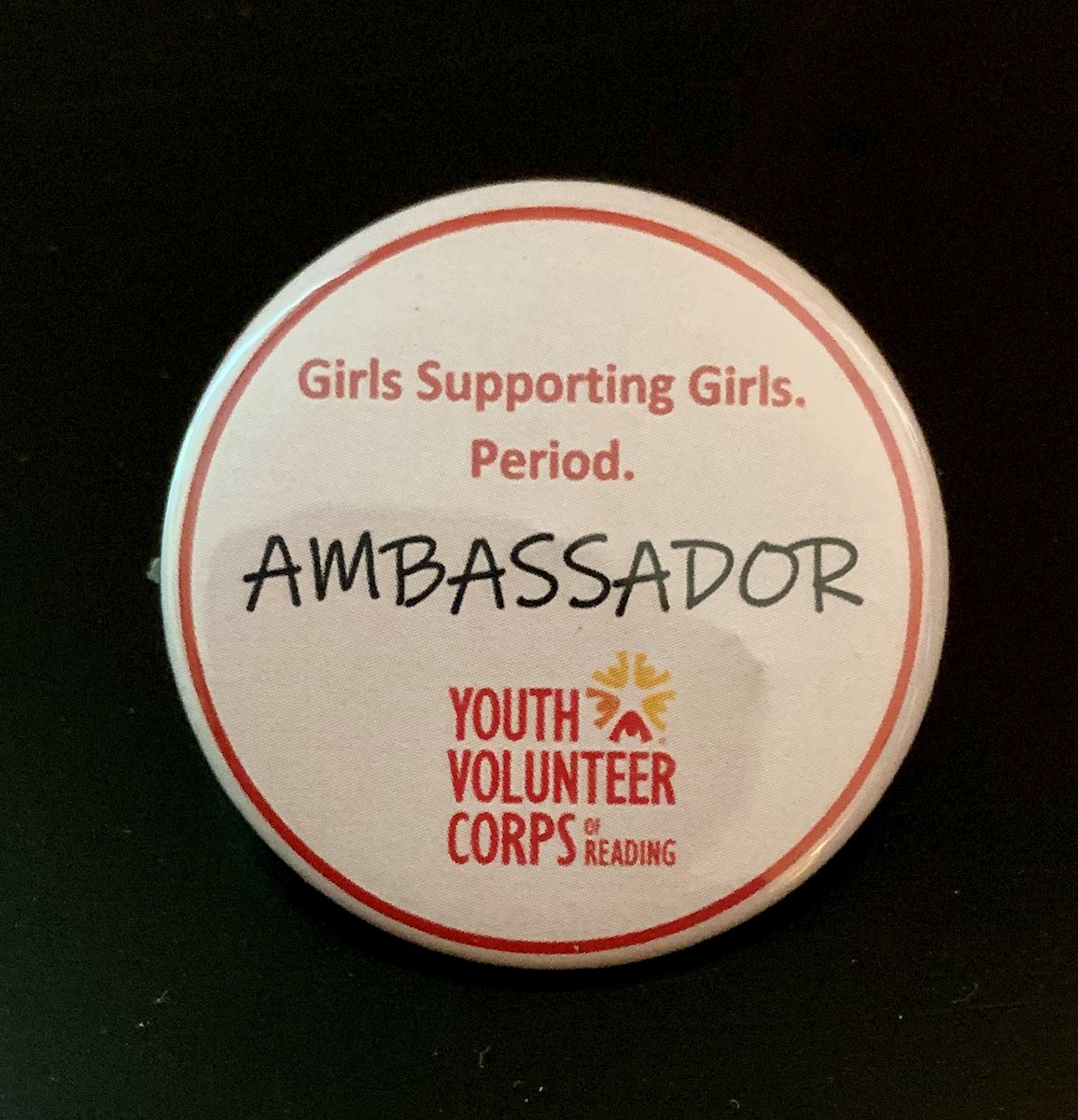 The Youth Volunteer Corps “Girls Supporting Girls. Period.” project supports brave students becoming Period Ambassadors in their schools. Period Ambassadors wear pins to designate their commitment to end period poverty. The pin also makes the Ambassador visible to girls who may need help. With the consent of their school’s administrators, Period Ambassadors carry small bags of menstrual products (supplied by YVC) that they are able to distribute to anyone who find themselves in need of period products during school. Period Ambassadors also become a part of the “Girls Supporting Girls. Period.” project and the #PeriodPositive movement. Email us at ambassador@voiceupberks.org.
The Youth Volunteer Corps “Girls Supporting Girls. Period.” project supports brave students becoming Period Ambassadors in their schools. Period Ambassadors wear pins to designate their commitment to end period poverty. The pin also makes the Ambassador visible to girls who may need help. With the consent of their school’s administrators, Period Ambassadors carry small bags of menstrual products (supplied by YVC) that they are able to distribute to anyone who find themselves in need of period products during school. Period Ambassadors also become a part of the “Girls Supporting Girls. Period.” project and the #PeriodPositive movement. Email us at ambassador@voiceupberks.org.
3. Sign the national petition to end period poverty.
Every student deserves the reassurance that their school restrooms are outfitted with necessities to accommodate their biological needs. Yet, for roughly half the US student population, there is a glaring exception to this commitment: menstrual hygiene products. Sign the national petition to end period poverty at https://actionnetwork.org/petitions/sign-now-end-period-poverty
4. Normalize Period Talk
Half of the reason why we have period poverty is because of damaging views. Many see menstruation as ‘dirty’ or ‘shameful’. This makes it difficult for a lot of people to talk about their period and get support when they need it. It’s time to ditch taboo and get talking. You’ll encourage others to feel less embarrassed by period talk normalizing what’s natural. This also separates fact from fiction helping people foster healthier, more loving relationships with their bodies - a necessary ingredient for happiness. Don't be afraid to have a conversation and speak up! #PeriodPositive #ItsNatural
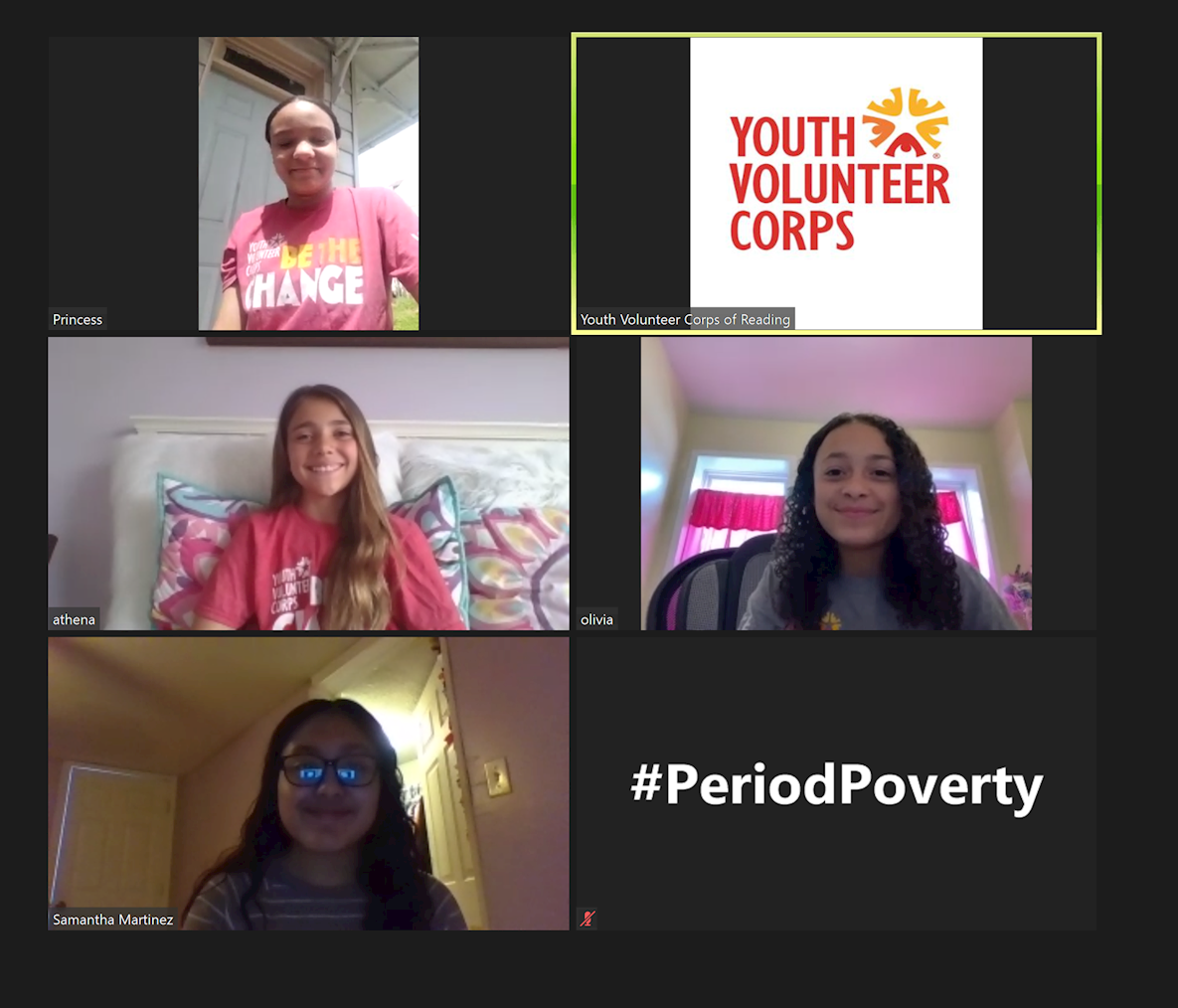
5. Support our project by donating
Help us to buy period products, print educational materials, and keep our project running. Click here to donate!
Resources
See our pamphlet, "Period Talk What Girls Need to Know" for information about menstrual cycles, pads and tampons.
For tips on how parents can talk to thier children about periods, click here.
*Report: State of the Period. The widespread impact of period poverty on US students Commissioned by Thinx & PERIOD
men·stru·al eq·ui·ty /ˈmenstr(o͞o)əl ekwədē/ 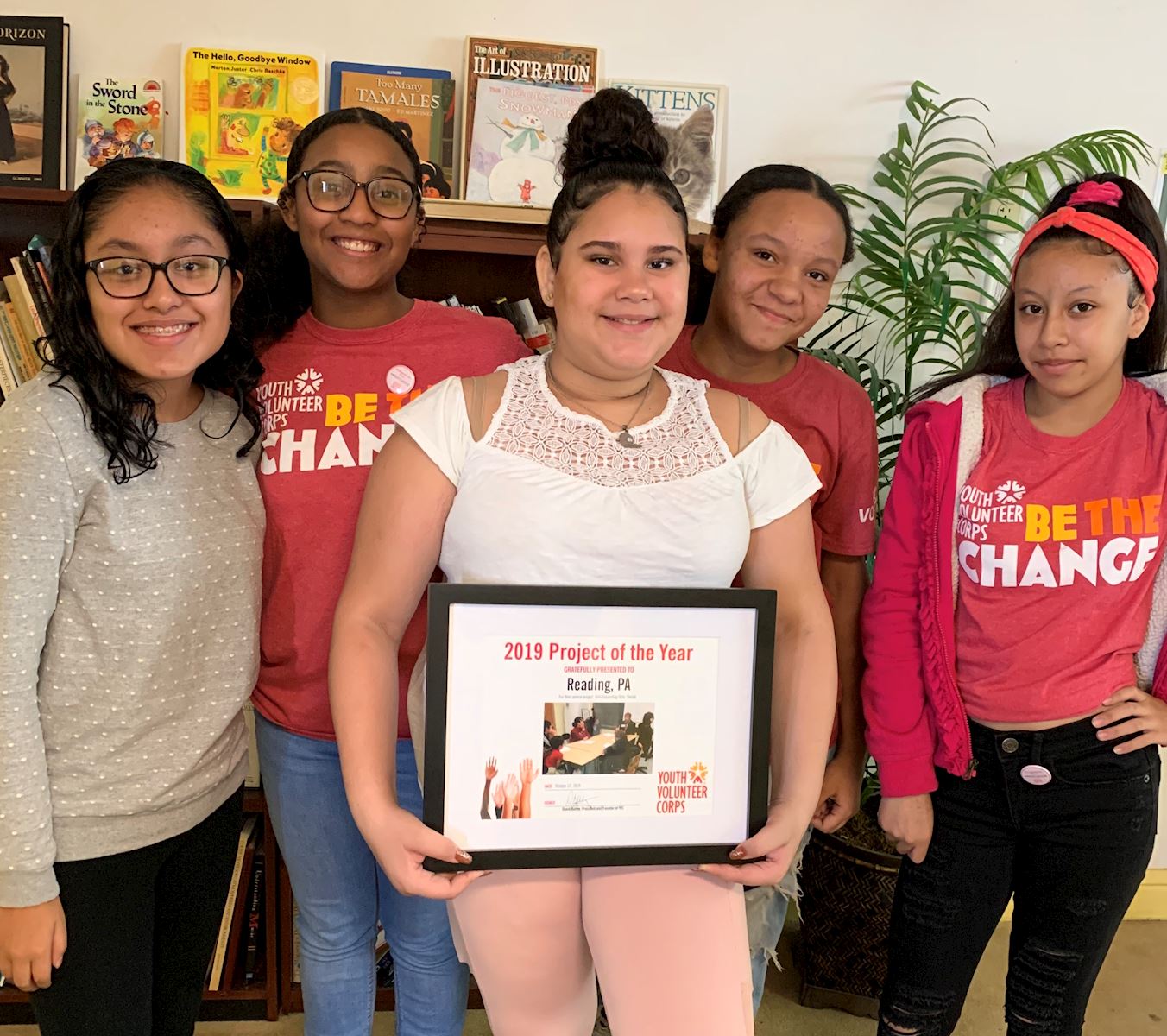
ad·vo·cate /ˈadvəkət/
YVC Menstrual Equity Advocates.
In October 2019, the “Girls Supporting Girls. Period” project was named Project of the Year across the international Youth Volunteer Corps (YVC) network. YVC has more than 30 affiliates throughout the U.S. and Canada, with over 4,000 projects taking place each year, and only one project receives this top honor.
This project was supported by a grant from the Power of the Purse Fund of the Berks County Community Foundation.
©2018 VOiCEup Berks, 201 Washington St., Suite 547, Reading, PA 19601 | 484-706-9364| Privacy Policy | Terms of Use
Connect with Us!